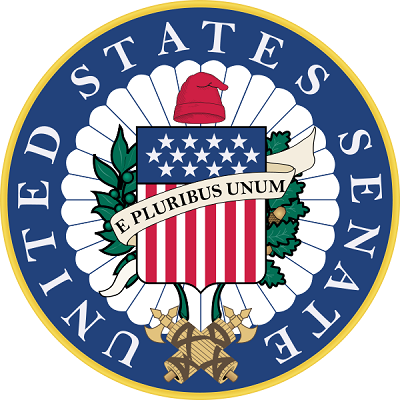Washington, DC - March 1, 2014 - U.S. Senator Charles E. Schumer today announced that, after his push, the World Trade Organization (WTO) has ruled against China and declared that it has been illegally hoarding rare earth elements since 2010, which has been hugely damaging to high-tech and manufacturing companies in Upstate New York, like Ceno Technologies in Buffalo. China controls 90% of these rare earth elements, which companies in Buffalo depend on for their products, and China’s withholding of exports of these critical minerals has driven up costs and led to major price fluctuations and uncertainty for Upstate New York businesses.
Over the course of several years, Schumer has urged former U.S. Trade Representative Ron Kirk and former Commerce Secretary Gary Locke to take actions to end these unfair trade practices. Since 2010, China’s government imposed strict export restraints and sky-high export taxes on rare earth elements, which has led to a cheap and plentiful flow of rare earth elements within China, and an expensive and drastically limited global supply. China’s government's actions created yet another unfair advantage for China’s manufacturers, causing markedly higher costs increases for high-tech and manufacturing companies in New York that produce items ranging from batteries, to wind turbines, to laser-guided weapons, to night vision goggles. Schumer applauded the WTO ruling, which will prevent China from hoarding these elements, and will provide much needed price certainty and lower costs for Upstate New York businesses.
"From currency manipulation to hoarding rare earth minerals, China’s government has time-and-again violated international treaties and trade agreements to unfairly help their economy at the expense of others," said Senator Schumer. "I applaud the U.S. Trade Representative for standing up to China on this issue and the WTO for reaching this decision, which is a major victory and will provide much-needed price certainty and bring down costs for high-tech businesses and manufacturers in Upstate New York, like Ceno Technologies in Buffalo.”
Schumer previously urged the administration to act against China during events at a Buffalo company highly affected by China’s rare earth element hoarding – Ceno Technologies. Ceno Technologies is a company that researches and develops advanced materials technology that relies heavily on research utilizing rare earth elements. The Buffalo-based company used to pay $200 per kg of Gadolinium, but was paying $600 per kg at the time of Schumer’s visit to the company in 2011 – three times the price for an essential ingredient to Ceno’s production process.
“Simply put, restricting rare earth components due to unethical export control places an increased cost on researchers and industry and has a very significant impact on the global economy. Ceno Technologies relies on these materials, and so we welcome efforts by the WTO and Sen. Schumer to crack down on the illogical restrictions placed on rare earth components. Greater access to these materials is key to the growing fields of nano and advanced material development in a wide variety of disciplines, including advanced medical imaging systems for human diagnostics, disease treatment, drug development and advanced delivery systems” said Scottpatrick J Sellitto, President and CEO of Ceno Technologies.
Schumer also highlighted that as the high-tech and medical tech industry grows in Western New York, available and affordable rare earth elements are going to be key. Schumer has previously supported research efforts led by the University at Buffalo to find alternatives and ways to reduce dependence on rare earth materials but highlighted that those efforts are not yet far enough along to totally remove local companies dependence on these critical materials.
The trade restrictions by China, which controls about 90% of the earth’s rare elements market, led to higher production costs for items like batteries, magnets, electric cars, and wind turbines. Rare earth elements are also critical to military weapons systems, laser-guided weapons, and night vision goggles, leading these restrictions to pose a serious threat to national security. For years, China’s government has slowly tightened rare earth element export quotas, but over the past few years has taken these unfair trade practices to the next level. The combination of strict export restraints combined with skyrocketing taxes on the limited rare minerals that are exported has resulted in a cheap and steady flow of rare earth elements to China’s manufacturers, and a scarce and expensive supply to the rest of the world. According to the Financial Times, “Beijing’s export restriction, first introduced in 2009, caused a surge in prices around the world in 2011. The cost of some rare earths soared by as much as 500 per cent amid fears of global shortages.”
The drastic changes in China’s export policy caused serious uncertainty among producers who use rare earth elements in their products. Previously, prices for these metals would have changed every month or two, but some producers have been facing daily price changes or have been notified that the minerals they need are unavailable for a long period of time. This seriously hampers their ability to plan for the future.
China’s trade practices had also been posing a threat to national security. According to the Department of Defense, difficulty in obtaining cerium – a rare earth element – caused production delays with weapons systems. China’s hoarding forced several branches of the military, a defense contractor, and departments across the federal government to review their rare earth metals acquisition process, recognizing the possible perils of depending on a Chinese-dominated market full of unfair policies. Rare earth elements from China are essential to a wide range of commercial and military products including batteries, wind turbines, smart phones, hybrid cars, magnets, laser-guided bombs and munitions, and night-vision goggles. The reduction in export quotas resulted in huge spikes in the cost of production for companies in Upstate New York that produce high precision lenses, magnets, and other products. The ruling by the WTO will prevent China’s hoarding and bring prices back down to a more normal level.










